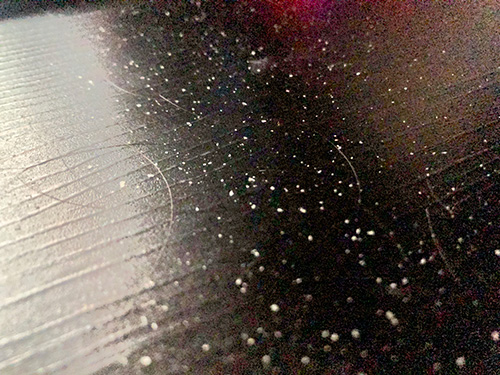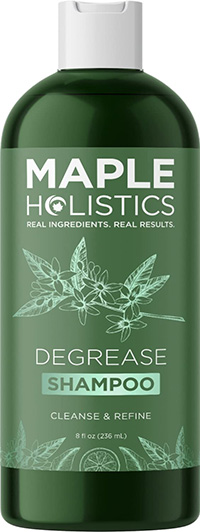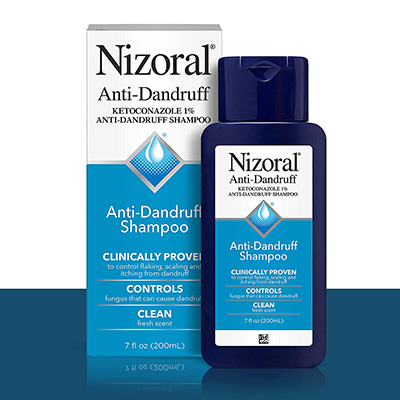Contents
There are plenty of natural remedies for dandruff available. Some work better than others, but they do work. Keep reading to find out more about natural dandruff remedies.
The face and scalp have the most sebaceous (oil) glands. Sebum is the oily secretion that lubricates the hair and scalp to keep them pliable and soft. However, too much sebum can be collected to form dandruff.
Dandruff is a covering of dead skin that impedes new hair from growing because it cannot break through the dead skin. Flaking or scaling of scalp cells results. It may or may not come with itching.
Dandruff is caused when a change in the surface cells of the scalp results in flaking and scaling. This change is especially keyed to nutritional deficiencies. It mainly occurs in those with oily skin prone to developing superficial, acute, and chronic bacterial skin conditions. There is generally excess oil secretion in the sebaceous glands. The oil binds the cells together on the scalp. Nutritional deficiencies can cause these abnormal secretions.
Natural Remedies for Dandruff

Biotin, a B vitamin, is a primary anti-dandruff compound. Take six milligrams a day. It treats dandruff and the related seborrhea condition (overactivity of the sebaceous glands, causing excessive sebum). A handful of soybeans contains six milligrams of biotin. Garlic comes second in biotin content, followed by corn, sesame, alfalfa, avocado, barley, and oats.
Sometimes there are severe B complex deficiencies and a lack of essential unsaturated fatty acids and zinc.
Other essential nutrients include selenium, lecithin, and sulfur.
Avoid grease, excess fats, and all fried foods. Avoid alcohol. Check for any food allergies (wheat, citrus, dairy products, etc.). Stay away from stressful situations. Do not use harsh and irritant hair treatments and shampoos. Also, avoid sugar, white flour, chocolate, and seafood.
Ensure the diet includes vitamins E and A, PABA, folic acid, B6, zinc, and flaxseed oil. If needed, take digestive enzymes. Also helpful are biotin, lecithin, and kelp. Eat fifty to seventy-five percent raw food.
A short fast is a great way to begin the program. Then start eating all-natural nutritious foods.
Hair Washing and Massaging
Massage burdock root oil into the scalp. Other herbs with anti-dandruff qualities are comfrey, licorice, celandine, plantain, and ginger. Make a tea of any or several and use it as a hair rinse.
Place four heaping teaspoons of dried eucalyptus leaves in a quart of boiling water. Stir. Then cover. Remove from heat and steep for an hour. Strain and pour the liquid into a squeeze bottle. Add one tablespoon of apple cider vinegar. At the close of your shower, pour the rinse slowly over your head. For maximum effect, let it dry.
Aloe vera shampoo once or twice a week will keep dandruff at bay.
Avoid shampoos containing selenium sulfide. They can cause eye damage and hair loss.
Do not use tar-based shampoos on your head if you have blonde hair. It will turn the hair brown.
At bedtime, rub aloe vera gel on the scalp.
The bark and leaves of willow trees made into a tea can cure dandruff.
A little sunlight is suitable for your scalp and hair.
Keep calm and relaxed. It will help your hair.
Walking outdoors will help your hair and your entire body.
Natural Remedies for Oily Hair
The main symptom of this condition is excess oil in the hair. Redheads rarely have oily hair, but it is more prevalent in blondes. Keep reading to learn about the many natural remedies for oily hair.
The sebaceous glands produce excess oil, and nutritional aspects must be corrected. There are as many as 140,000 oil glands on the scalp. Oil tapers into fine, straight hair the easiest. Wiry hair tends to be the least oily. Oil production tends to be increased by intense heat and humidity. Hormonal changes and stress can also play a role.
- Only use clear shampoos. They have less oil in them.
- Give yourself a double shampoo with a rinse in between. After shampooing, feel your hair. Does it feel oily? This will help you know how well you are doing.
- Squeeze the juice of two lemons into a pint of water and use it as a finishing rinse. This helps remove soap residues, which tend to weigh down the hair. You can also use an apple cider vinegar rinse. After showering and blotting the hair dry, apply the rinse and massage it through the hair. Let it alone for five minutes. Then rinse with cool to tepid water.
- Use a horsetail herb rinse. It strengthens the hair shafts and reduces the oil on them.
- Do not overbrush; this carries additional oil from the roots into the hair.
- Keep away from consuming too much fat in the diet. A diet of fried foods, saturated fats, dairy products, and meat tends to trigger increased sebum production. This results in any scalp and hair.
- Avoid shampoos containing sodium lauryl sulfate or NDELA (nitrosodiethanolamine). Both are harsh and tend to dry the scalp, perhaps causing flaking.
Many of the suggestions for natural remedies for dandruff (above) should also be considered.
DISCLAIMER: All content on this website is presented solely for educational and informational objectives. Do not rely on the information provided as a replacement for advice, diagnosis, or treatment from a qualified medical expert. If you are pregnant, nursing, or have any preexisting medical concerns, talk to your doctor before using any herbal or natural medicines.
References
- Vance Ferrell Harold M. Cherne, M.D. The Natural Remedies Encyclopedia [Book]. – Altamont, TN: Harvestime Books, 2010. – Vol. Seventh Edition: 7: pp. 384, 385. [natural remedies for dandruff]
- Satchell, A. C., Saurajen, A., Bell, C., & Barnetson, R. S. (2002). Treatment of dandruff with 5% tea tree oil shampoo. Journal of the American Academy of Dermatology, 47(6), 852-855. https://pubmed.ncbi.nlm.nih.gov/12451368/
- Rele, A. S., & Mohile, R. B. (2003). Effect of mineral oil, sunflower oil, and coconut oil on prevention of hair damage. Journal of Cosmetic Science, 54(2), 175-192. https://pubmed.ncbi.nlm.nih.gov/12715094
- Surjushe, A., Vasani, R., & Saple, D. G. (2008). Aloe vera: a short review. Indian Journal of Dermatology, 53(4), 163. https://www.ncbi.nlm.nih.gov/pmc/articles/PMC2763764
- Cavanagh, H. M., & Wilkinson, J. M. (2002). Biological activities of lavender essential oil. Phytotherapy Research, 16(4), 301-308. https://pubmed.ncbi.nlm.nih.gov/12112282


